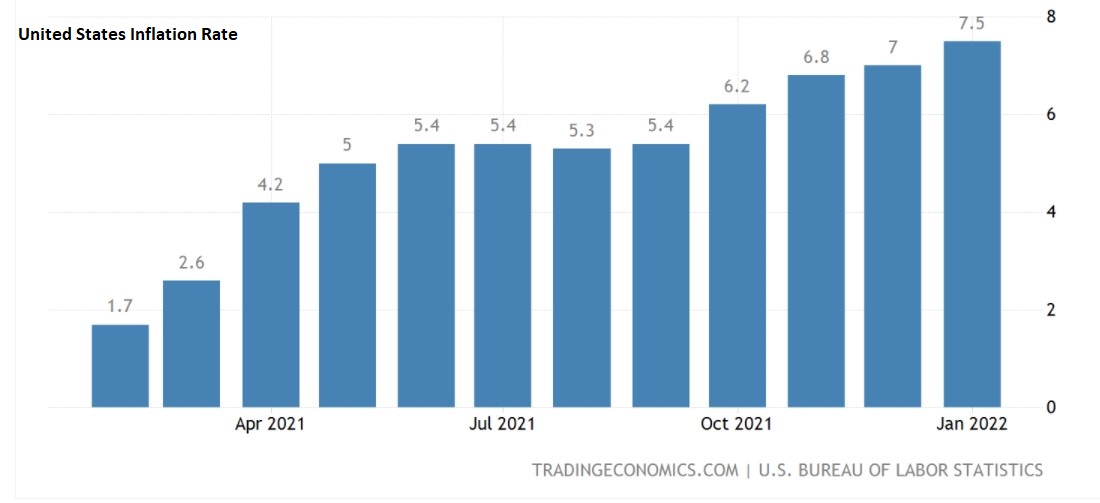Top 3 reasons why the Fed should raise rates despite financial markets turmoil
The Federal Reserve of the United States planned to hike the federal funds rate at its March meeting. Now that financial markets are in turmoil, should they do so? Here are three arguments in favor of a rate hike.
Up until today, the main topic in financial markets was inflation and how will central banks cope with the relentless rise in the prices of goods and services. The Fed’s March meeting was supposed to deliver not only a 25bp rate hike but even a 50bp hike was expected by many.
That all came to an abrupt change today. When Europe woke up, Russia had already invaded Ukraine from all sides.
A full-scale invasion of all Ukrainian territory brings Europe and the world an unwelcomed war. Suddenly, neither inflation nor the pandemic are important topics anymore but lost lives and ravages of war.
Naturally, the global stock markets tanked. US futures declined, European indices cratered – as expected in a risk-off environment. But now that financial markets are in turmoil should the Fed keep raising rates in March? Here are three reasons why it should do so:
- A dovish statement would further fuel inflation expectations
- Inflation would rise further if deficit spending is used to fund a war
- WTI crude oil traded above $100/barrel today

A dovish statement would only lead to higher long term inflation expectations
At first glance, a dovish statement, thus a no hike in March, would trigger a rally in equity markets, but that would likely be temporary. Higher inflation expectations were the reason for the markets to tank in 2022, and a no hike would only trigger much higher long term inflation expectations.
Therefore, a no hike would hurt stocks more in the long run.
Deficit spending to fund war would amplify inflation
To fund a war, governments use deficit spending to fund it. In the long run, such a move would end up forcing the central bank to hike even more aggressively, something that might be too much for the current financial system.
Oil breaking above $100/barrel
Today, the WTI crude oil traded above $100/barrel for the first time since 2014. Higher oil prices translate in higher inflation, thus threatening the Fed’s price stability mandate.
All in all, the Fed faces a tough decision in March. The war changes everything, but the central banks may be in a position to hike in uncertain times.
